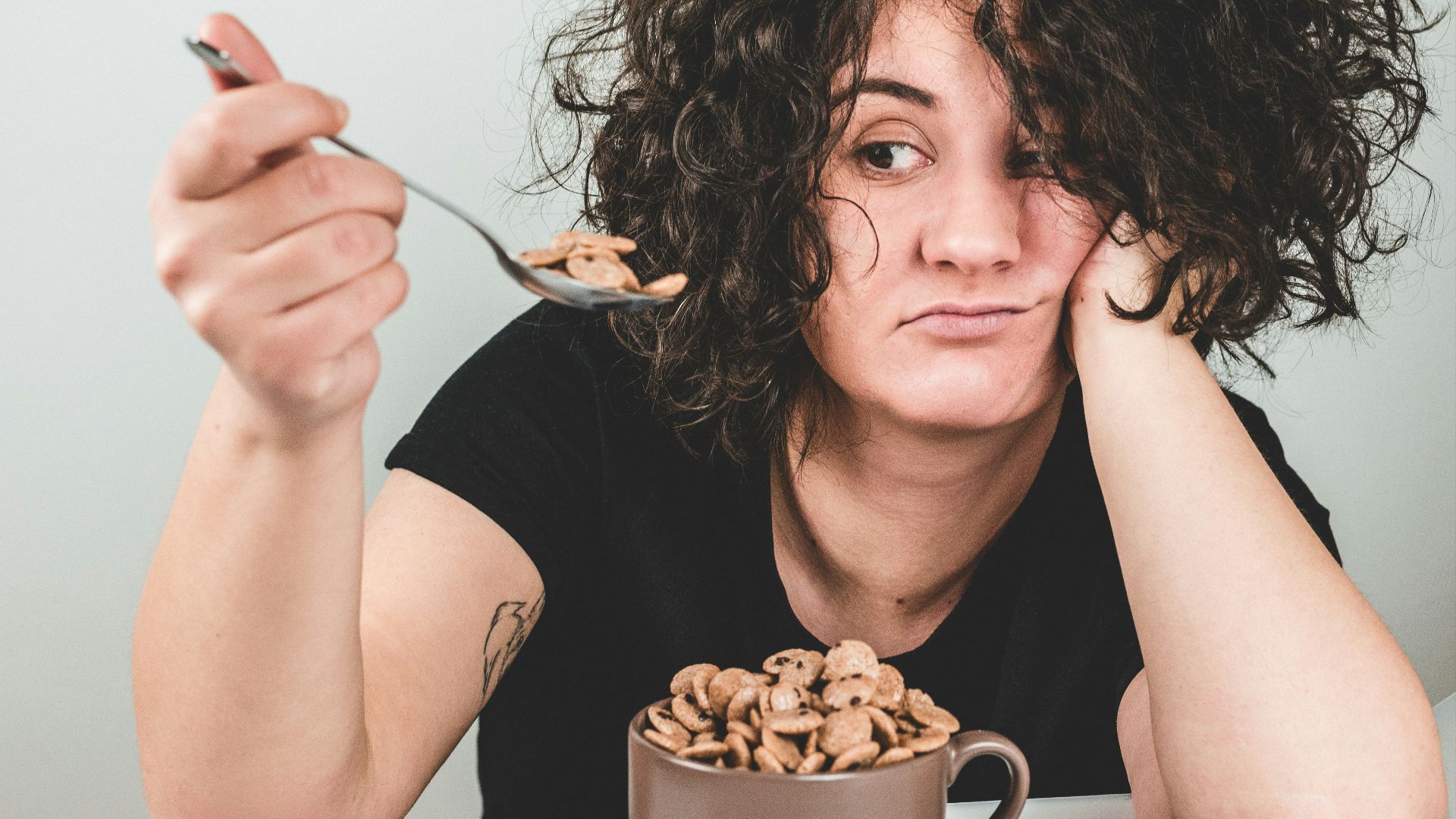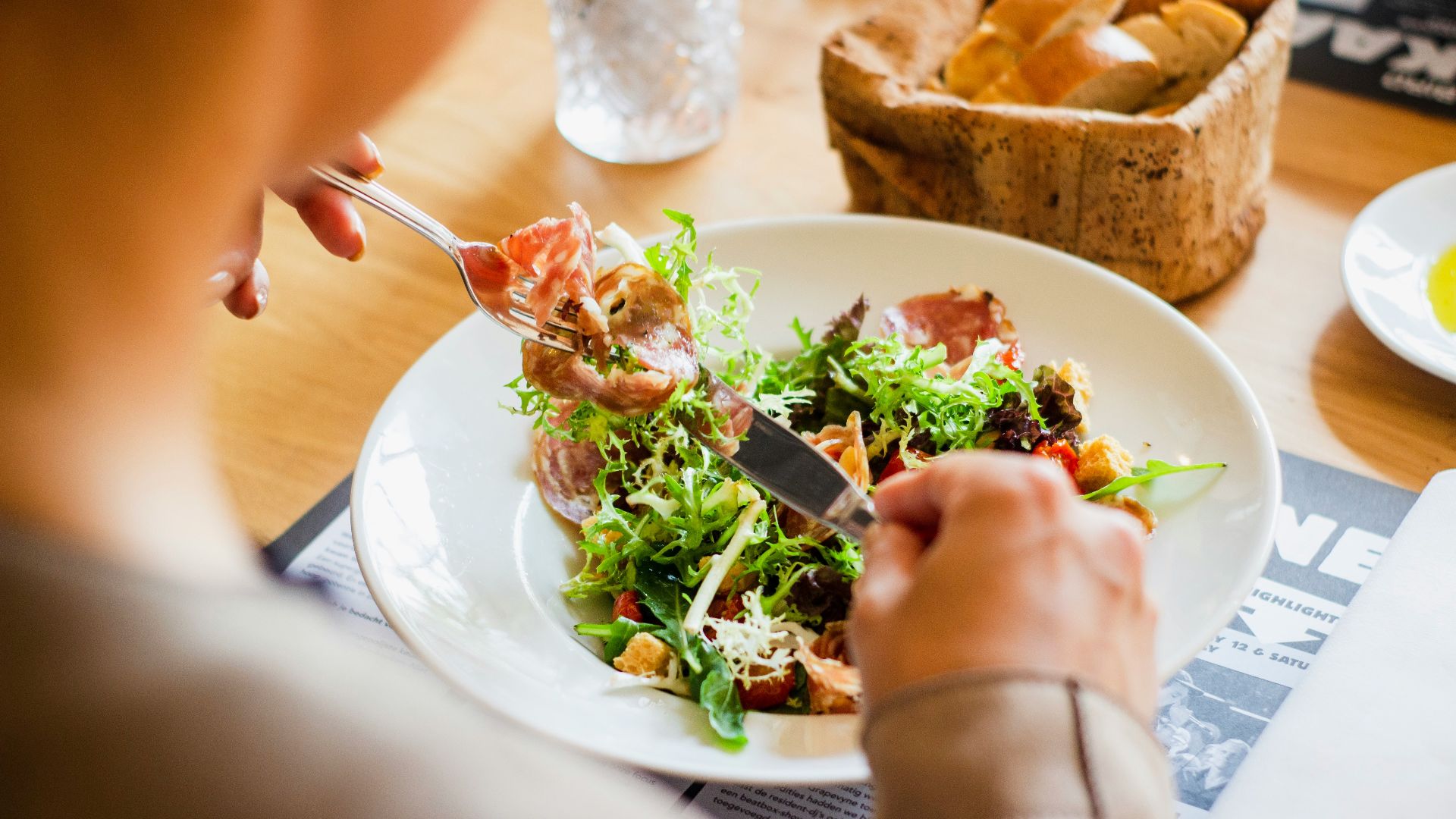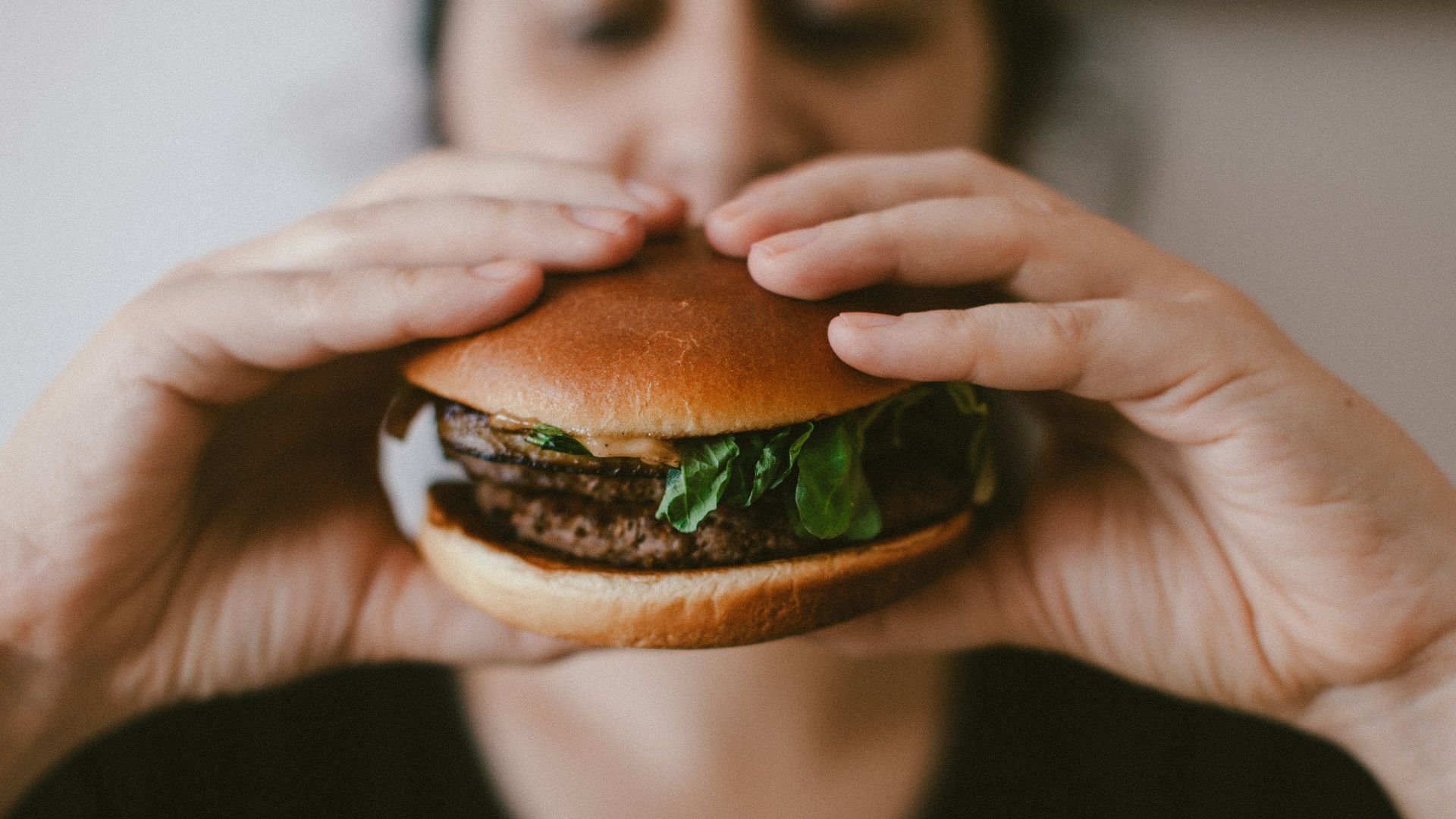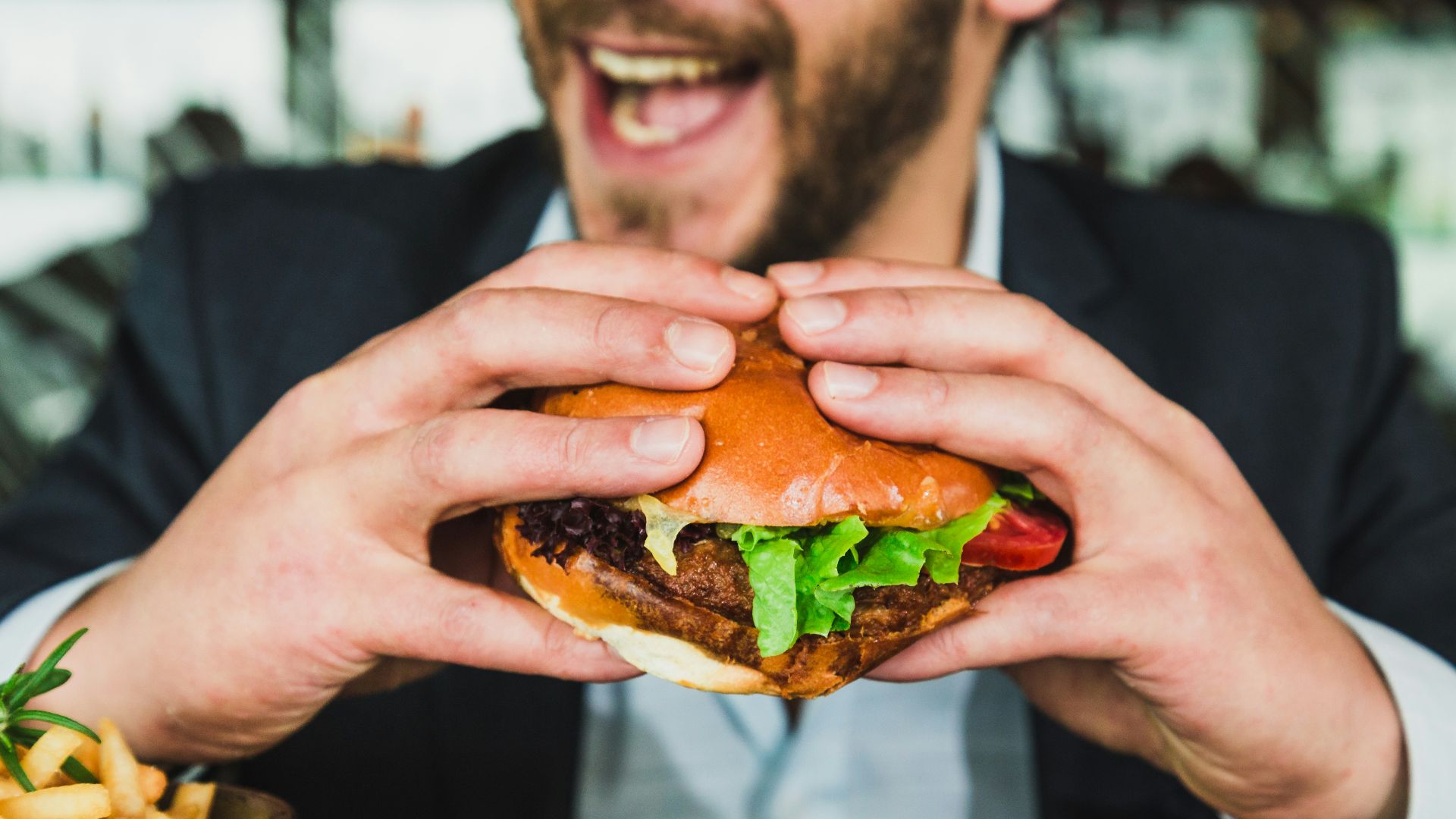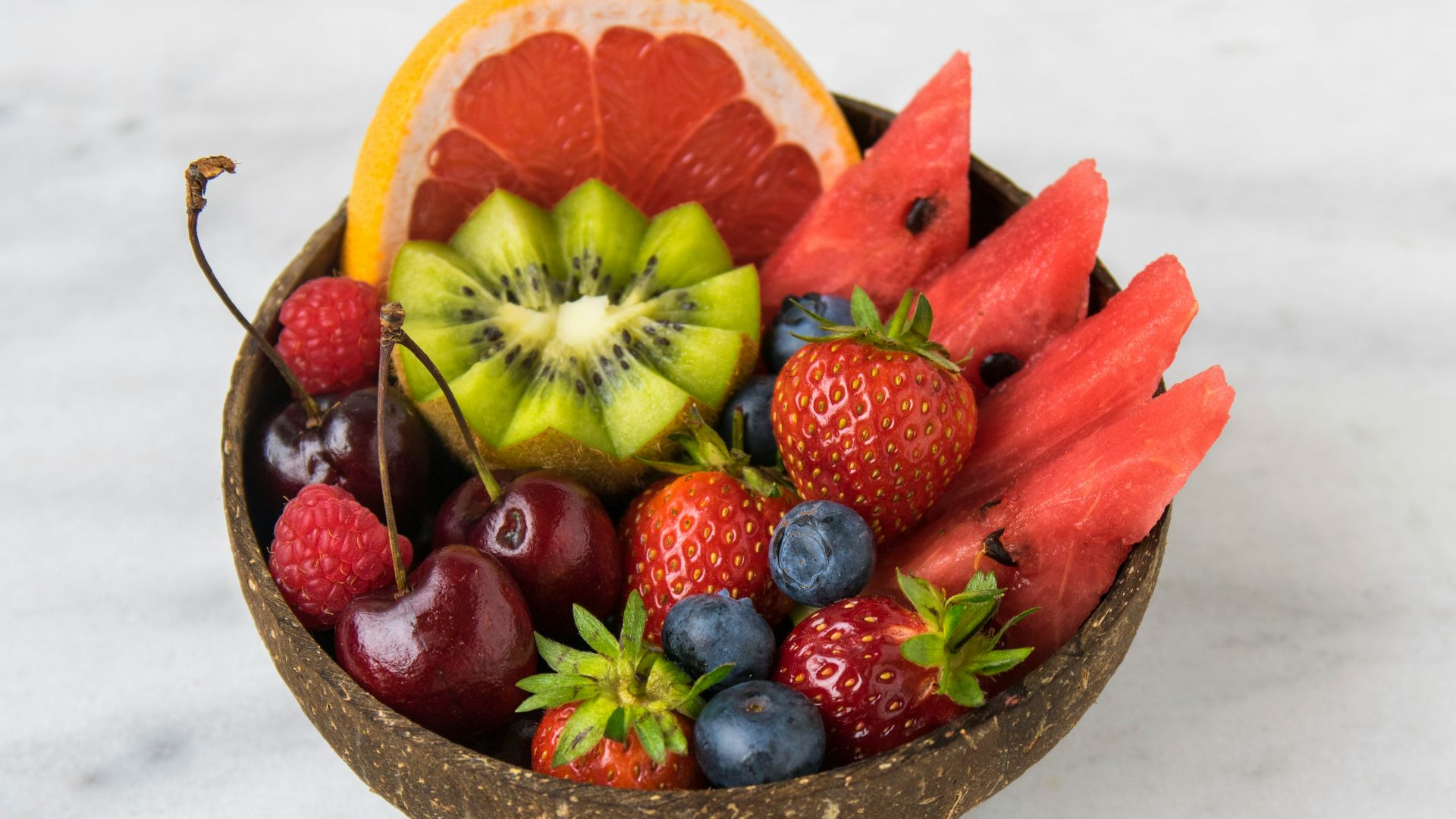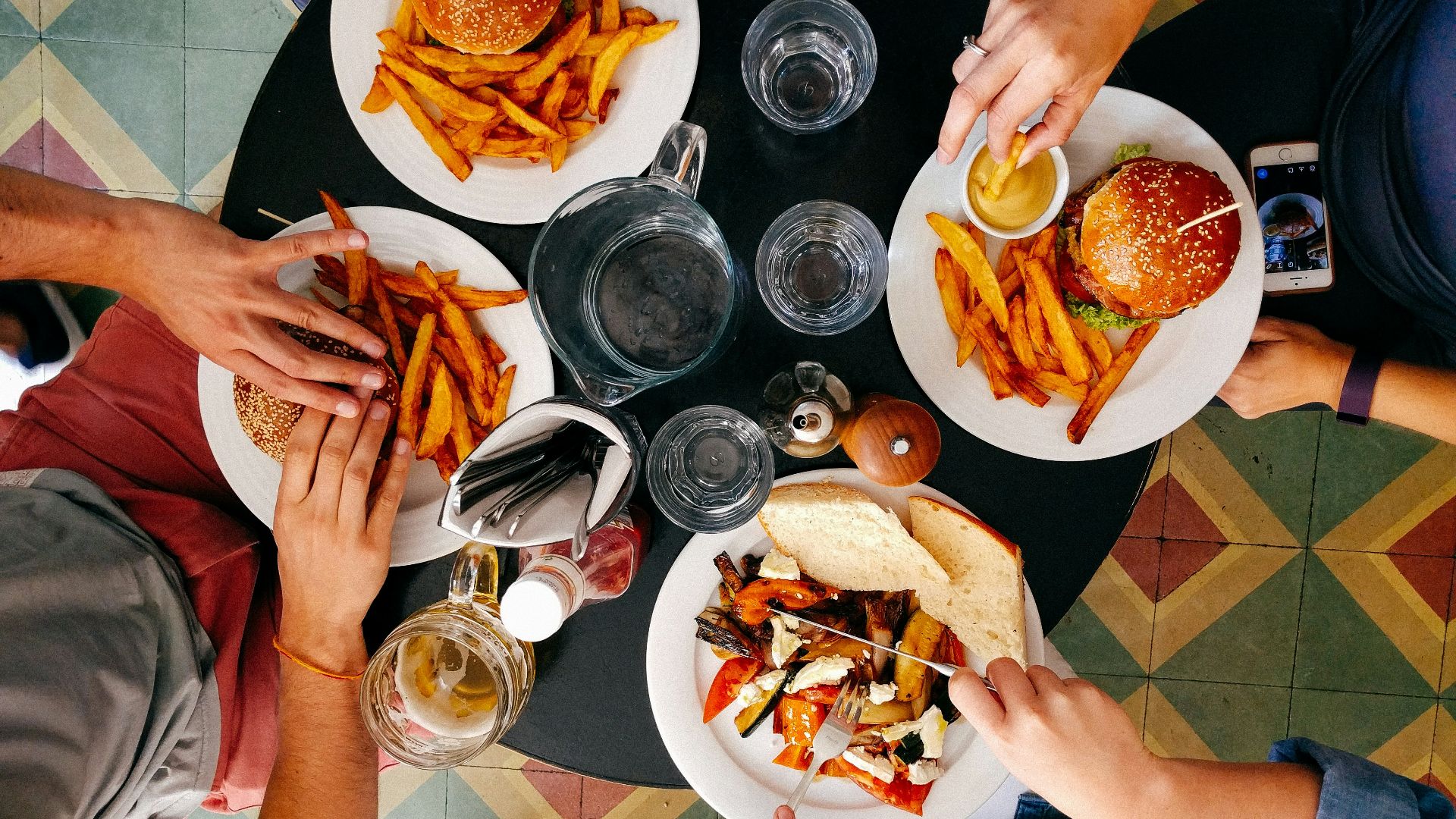10 Signs You Have a Food Addiction & 10 Ways to Overcome It
Are You Addicted to Food? Here's How to Take Charge
Food is essential, but there's a distinct difference between fulfilling our basic daily needs and consuming more than our body requires. If you're constantly craving snacks and sweets and find it impossible to not give in to those urges, you might have a food addiction. Worried this might be you? Read on for 10 common signs of food addiction to look out for—and 10 ways to overcome it and reclaim control.
1. Constant Cravings
Occasional cravings are normal, but when you're constantly feeling the itch to eat specific foods, especially when you're already full, that may indicate you have a food addiction. For example, after eating a filling dinner, you still want to reach for something sweet.
2. Binge-Eating
Binge-eating is when you consume large portions of food in a short amount of time, without the ability to control or stop it. This could mean you start a bag of chips with the intention to eat a few, only to finish the entire thing—along with other snacks.
3. Feeling Guilty—But Doing It Again
After eating large amounts, you might often feel guilty about the lack of control you had. Other unpleasant emotions may accompany this, too, and your habits may even cause fraught relationships with loved ones. Even then, you can't help yourself and you continue to have repeat episodes.
4. Inability to Reduce Food Intake
Despite your attempts or suggestions from friends and family, you can't seem to eat less. Even when you try to go on different diets—some of which may even seem extreme—you always bounce back to square one. Sure, you might have a successful day or two, but these victories never seem to last long.
5. Mood Swings
Another sign of a food addiction is frequent mood swings that are directly affected—or improved—by eating. For example, you might feel irritable and emotional when you're hit with daily cravings, and your mood only gets better once you get the thing you want. The cycle repeats to the point where you may only feel happy when you're eating your favorite snack.
6. Majority of Your Day Is Spent On Food
If most of your time is spent eating and procuring food, this may be another classic sign of food addiction. In other words, your entire daily life and routine revolve around food and eating, and you can't go one second without munching on something.
7. Constantly Thinking About Food
Not only are you always eating, you're also constantly thinking about food. You might wonder what you're going to eat next, what you'll eat for dinner, for dessert, or for the next day. Whatever it is, if it's about food, the thought stays at the forefront of your mind.
8. Eating to the Point of Uncomfortable
When you have a food addiction, you never eat until you're just full. Instead, you continue even after that, consuming more and more until you feel uncomfortably stuffed. What's more is that this doesn't only happen once, but occurs frequently.
9. Hiding Food
Out of guilt, you may even start to hide your snacks and eat secretively, without others seeing. You might feel "free" when you're home alone, snacking on several things at once, but then lie about what you ate later on. Or you may hoard food in your room to eat on your bed.
10. Making Excuses
Another common sign of food addiction is making excuses. You might make excuses to defend yourself and your habits in front of others, or you do it to yourself, finding ways to justify giving in to your cravings time and time again.
Now that we've covered some of the signs of food addiction, let's jump into 10 ways you can overcome it.
1. Keep a Food Diary
Keeping a food diary can help you track your eating patterns, which may allow you to form healthier habits. While writing down what you've eaten, you can also mark down your thoughts and feelings before and after meals.
2. Practice Mindful Eating
Mindful eating isn't only listening to your body when it's full, but being conscious and fully present when eating. That means, instead of just stuffing more food into your mouth, chew slowly and savor the complexities of its flavor. Adopting this habit can help prevent you from overeating.
 Pablo Merchán Montes on Unsplash
Pablo Merchán Montes on Unsplash
3. Stay Active
Everyone should get at least 30 minutes of physical activity every day, so get moving! If you find that your mood improves after eating, it may surprise you to know that you can get the same dopamine boost when engaging in exercise. So put on your running shoes and go!
4. Identify Triggers
Maybe there are certain dessert spots and restaurants that increase your cravings, or maybe it's certain hours, or certain moods. Whatever it is, try to identify and note down your triggers so that you can recognize them next time and stop yourself from giving in.
5. Manage Stress
When you're stressed, you're more likely to snack. And once you start, it becomes almost impossible to stop. When you start to feel overwhelmed, calm your mind by practicing deep breathing exercises or meditative yoga. By better managing your stress levels, you won't fall back into the habit of seeking food for comfort.
6. Find Better Coping Mechanisms
Still, sometimes it might be hard to fully manage your stress, what with your busy day-to-day life. But try to find ways to keep your mind distracted from thoughts of food by finding alternative coping methods, such as writing in a journal, cleaning your desk, or talking to a supportive friend.
 LinkedIn Sales Solutions on Unsplash
LinkedIn Sales Solutions on Unsplash
7. Choose Healthier Options
For those days when you feel like you just can't stop reaching for food, try choosing healthier options instead. So, rather than grabbing a bag of chips to snack on, cut up some fruit or fix yourself up a fresh salad. This way, you can subdue the craving by offering your body something nutritious.
8. Delayed Gratification
Instead of immediately responding to your cravings, try delayed gratification. This is when you resist the current temptation of something and reward yourself later on, such as after finishing all your work or chores. As your body gets used to having to wait a bit, your craving signals may happen less often.
9. Eat with Friends
It may also help to eat with a supportive group of friends who understand your condition and goals and can help you stay on track. Plus, eating with others allows you to slow down instead of finishing your meal too quickly.
10. Reach Out to a Professional
If you still find it difficult to overcome your addiction, don't be afraid to reach out to a professional for support. This could be a therapist who you can work out your triggers and habits with, or a nutritionist who can help you set healthier goals and steer you toward the right track.





